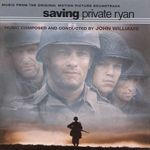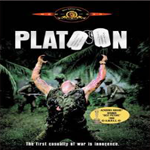General Annotations

Agricultural Life
In reading A Gate at the Stairs, knowledge of what it is truly like to live the typical Midwestern agricultural life, is quite helpful. Listed below, are a variety of lifestyle norms that Tassie mentions in the book, and also very true to reality.
• When growing up on a farm, close relationships to animals are formed. Helen, for example, was a pig on Tassie’s farm who was dear to the family’s heart…and eventually their stomachs as well.
• Another habit created by the agricultural lifestyle, is that of organic eating. Due to the fact that most “agricultural towns” are inhabited by a large number of farmers, meats and vegetables are processed and grown by neighbors. In the book Tassie mentions, “My father planted 10 acres of corn...” (page 53).
• One final interesting commonality of agricultural towns, is the rumors of extraterrestrial life. Because of the common appearances of crop circles in these areas, many are left to speculate that “visitors” have chosen agricultural towns as a settling ground. In the book Tassie refers to her town as the, “Extraterrestrial Capital of the world” (page 66).

City Life
While Tassie attends school at a large Midwestern University, she has to adjust to the difference that city life has to offer.
• One of my favorite references in relation to this topic, is that of “Downtown.” Because a city or town’s “Downtown” area is usually where the most business is held, this is an important place to consider. When walking Mary-Emma, Tassie compares Troy’s downtown to a “tiny Village” (page 150). She takes note of the many different restaurants and shops. Most Cities have downtown areas that are substantially larger than those in small towns.
• Another seemingly subtle detail of city life that is mentioned in the book, was that of “fast walkers” (mentioned on page 169). In large, busy cities, many people (especially downtown, where Tassie notes it) walk quite rapidly. I remember going to my mother’s job with her as a child, and her pace of walking, was my pace of running!
• The diversity of Troy is another common trait of city life. Throughout the entire book, Tassie makes mention to a diverse presence in Troy. There’s the variety of Chinese restaurants, the African-Americans in attendance at Sarah’s “support groups” and the Latino children “fishing in the pond for dinner” (page 185). In comparison to small towns, diversity in cities are great.

9/11
As a post-9/11 novel, there are a few subtle, but deep influences created by the 9/11 atmosphere within the book. From Tassie’s boyfriend, Reynoldo, to the death of her younger brother as a result of him joining the military, and all of the emotional and psychological scarring in between, Lorrie Moore does a great job in grasping the variety of ways in which this tragic day has affected Americans.
What is 9/11?
On September 11, 2001, America witnessed tragic, fatal, and terrifying terrorist attacks in New York City, right outside of Washington, D.C., and Pennsylvania. As www.history.com summarizes, “On September 11, 2001, 19 militants associated with the Islamic extremist group al-Qaeda hijacked four airliners and carried out suicide attacks against targets in the United States. Two of the planes were flown into the towers of the World Trade Center in New York City, a third plane hit the Pentagon just outside Washington, D.C., and the fourth plane crashed in a field in Pennsylvania. Over 3,000 people were killed during the attacks in New York City and Washington, D.C., including more than 400 police officers and firefighters.”
To have lived to see this tragic event (regardless of age, gender, race, or ethnicity) was a greatly saddening experience, which resulted in fear, anxiety, and a desire for “living” stronger than ever.
Midwestern-Specific References
Throughout the book, Tassie makes mention to several places that are found mostly or only in the Midwest. In case you are not familiar with some of these places, take a look below!

Perkins
Perkins is a “family-friendly” restaurant that serves breakfast, lunch, and dinner, seven days per week. Known for its great bakery, delicious menu and late night/early morning operating hours, Perkins is ideal for college towns, and wonderful for meetings, or any type of “date.”

Farm & Fleet
Farm and Fleet is the Midwest’s smaller version of Wal-Mart or K-Mart, selling products which range from Home-improvement and apparel, to automotive.

Dairy Queen
Dairy Queen, founded in Joliet, IL, is a restaurant which serves a variety of heavenly dairy-full deserts, as well as all-American burgers, hot-dogs, and more.
The Adoption Process
Throughout the novel, we see through Tassie’s job as a nanny the process Sarah and Edward have to go through in order to adopt Mary-Emma. In the United States, the eligibility requirements for adopting a child consist of being 21 years of age, proving a steady enough income to support the child, and having a home with enough space to comfortably house a child. During the process, there are some additional parenting classes prospective parents must take and the parents have to pass a criminal background check (adoptuskids.org). According to adopt.org, the following are the steps in the process of adopting a child. In the novel, the Brinks reach the supervised home stay step. The final aspect of the adoption process that we see in the novel is the relationship between the birth mother and the adoptive parents. Though it is never explicitly stated, the novel says that Sarah and Edward were not to give away personal information, which relates to adoptionservicesinc.com’s definition of a semi-open adoption. Also, the conversation the Brinks and the adoption agency have about what can be given monetarily to the birth mother fits these guidelines as well.
Tassie's Classes
Tassie discusses the classes she takes a few times throughout the novel. Most of these classes seem to be unrelated introductory courses, not indicating any particular major and seeming like stereotypical “blowoff” classes.
Intro to Sufism
Sufism is an aspect of Islam that focuses on the inner self and solidifying one’s personal connection with God on earth as opposed to focusing on the afterlife. The practice encourages its followers to cleanse themselves of bad traits and replace them with more virtuous ones. It follows Islamic law, but with a mind towards improving oneself, instead of just following the laws. It is understated, but implied that Tassie’s taking this class coincides with the recent 9/11 attacks and people wanting to know more about Islam. However, the Intro to Islam class was full.
War Movie Soundtracks
Tassie also takes a class on the soundtracks of war movies. This is semi prophetic due to her brother going into the army later in the book. The movies discussed include:

Madison- Troy Comparison
The city that Lorrie Moore uses as the setting of her novel A Gate at the Stairs, is a fictional college city in Wisconsin named Troy. Troy is a thinly veiled facsimile of Madison, Wisconsin, making it clear to the reader that Tassie attends the fictional equivalent of the University of Wisconsin at Madison. Madison is the capital of Wisconsin, housing more than 500,000 residents as well as being the home of the largest university in the state. One can draw parallels to Troy in the fact that the cold temperatures are often referred to, not unlike Madison, as well as Madison is considered a largely liberal city, just like its fictional counterpart. Another key similarity between the two cities is the racial makeup of the city, where Madison is populated by 74.9% Caucasians, leaving African Americans in the minority at a scant 7.7%. Lorrie Moore’s purpose for making Madison the setting of her novel can be related back to the fact that Moore taught creative writing at UW- Madison for more than 30 years, thus giving her a better understanding of a college town such as Madison.

Military Recruitment
One issue that Moore glances over shortly in the novel, yet ends up playing a larger role come the end, is the notion of military recruitment, specifically that of post-9/11. After the September 11th terrorist attacks, there was a large surge of patriotism that led to many individuals joining the military. This led to recruiting practices becoming more intensified as well as the beginning of recruiting being aimed towards younger and younger demographics. Up until 2005 recruiters for the most part stayed in their respective recruitment centers, however it was also about the time that they began experimenting with visiting schools and sporting events as well. At about 2005, however, fervor began to drop and the military fell behind quota, initiating the targeting of these demographics. This is no clearer than when one is to look at some of the practices of today, where recruiters come to high schools with video games and fitness tests to further interest possible recruits. There is much controversy over these practices, as many argue that they are simply targeting more impressionable minds, however there are no laws or regulations on said practices, so there’s no end in sight for aggressive military recruitment.




